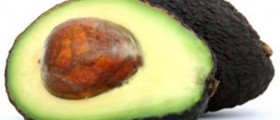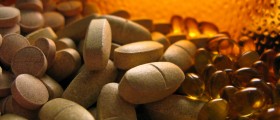
There are many reasons why people lose their appetite or desire to consume food.
It is important to have a strong appetite in order to maintain a healthy weight and if a person does not have a craving for food this represents an issue of great concern.
Strong appetite for healthy life
There are a large number of reasons people do not feel the need to eat and it is important to learn what they are in order to get the appetite back. A lot of it has to do with age, because many elderly people say that they are never hungry. When people get older their metabolisms slow down and a lot of times, the elderly will also lose their ability to taste food, which will naturally make them want to eat less.
Medication can also make a person lose his or her appetite. Antibiotics have been known to affect the taste buds and they can also slow down the movement of food through the digestive system. This makes a person feel full after a meal for a lot longer period of time. Chemotherapy can irritate the stomach, causing nausea and a lack of interest in eating. Pain relievers can also irritate the stomach and cause nausea. There are also heart medications and diuretics that can decrease one’s desire to eat too. Depression is another common cause for a loss of appetite. Depressed people have no desire to live and therefore to eat.
Another thing that can decrease a person’s appetite is poor nutrition. Nutrient deficiencies can take a toll on the appetite. A lot of older people have zinc deficiencies, which decrease their desire to eat.
Tips for regaining the appetite
Every person needs to eat regularly and to talk to a doctor in order to find the real cause behind the loss of the appetite.
Taking multivitamins and zinc supplements can also contribute to the consumption of the needed nutrients.
Sometimes it is better to eat smaller amounts of food at a time in order to improve the appetite. Instead of eating three large meals it might be better to eat seven small ones and to have a variation of food in order to get as many different vitamins and minerals into the body as possible.
It is also important to consume a lot of water, because when a person is dehydrated, they will not want to eat.
Nutritional elements in food
Healthy nutrition is necessary to provide cells and organisms with important materials to support life. Healthy and diverse diet can actually prevent and alleviate many health problems. Diet that consists of well balanced foods can prevent some of the most significant health risks, such as obesity, coronary heart disease, diabetes and cancer. A healthy diet consists of eating adequate amounts of all nutrients, and an appropriate daily intake of water. Healthy diet has well balanced macronutrients and energy, and it should be free from any toxicity from excessive amounts. The healthy diet standards are formulated for the general population, but some specific diets can promote a better health for people suffering from various conditions and are a good way for people to get their appetite back.
Carbohydrates consist of sugars, starches and fibers that are very common in most foods. They are the body's primary source of energy, but they also regulate the digestion, aid in the communication between the cells and support the functions of the immune system. Carbohydrates are made from carbon, hydrogen and oxygen, arranged into small sugar units, known as monosaccharides. If these molecules contain only one or two units they are called “simple sugars”. These sugars are easy to digest, and they provide instant energy refill to the body. Complex sugars are composed of twenty or more monosaccharides, and the body canot metabolize them as quickly as the simple carbohydrates. Complex carbs increase the blood glucose levels more slowly, preventing the rapid oscillations in blood sugar levels. Complex carbs are usually found in breakfast cereals, bread, potatoes, pasta and rice.
Fats are nutrients with very bad reputation but people should be aware that these nutrients are not always bad. Some of the fats are very beneficial, or even essential, for human health. Fats are important for the absorption of certain vitamins such as essential vitamin A, vitamin D, vitamin E and vitamin K. They are also a storehouse of energy for the body. Unsaturated fats, usually from herring, tuna, sardines, salmon and some vegetable oils and nuts, can help to provide certain essential nutrients such as fatty acids. These compounds are required for normal body functioning, but they cannot be synthesized by the body at all. Humans need to obtain essential fatty acids through the diet.
Vitamins are also organic compounds necessary in the diet. They cannot be synthesized by an organism but must be obtained from the diet. Some of the vitamins are water soluble while others are fat soluble. Vitamins are essential for the normal growth and development of a multi-cellular organism. They facilitate the growth and function of the skin, bones and muscles, fight against free radicals and boost the immune system.
Fibers are the indigestible portion of plant foods that act by changing the composition of the contents of the gastrointestinal tract, and the way other important nutrients are absorbed. They prevent cardiovascular diseases and promote healthy digestion.
Water is essential for every living being. The human body contains anywhere from 55% to 78% of water depending on the body size. An average human being needs about eight glasses of water per day.

















Your thoughts on this
Loading...